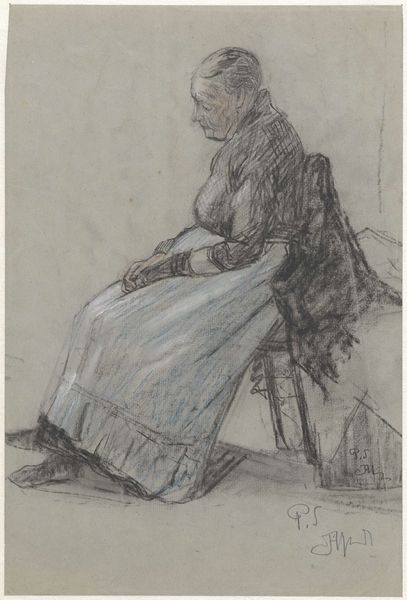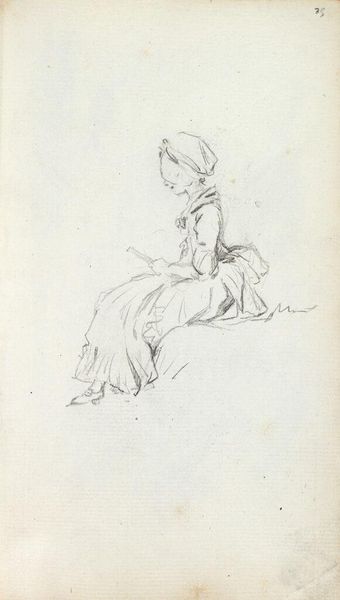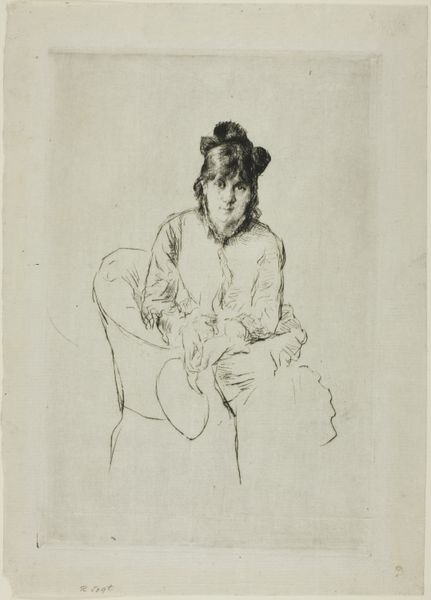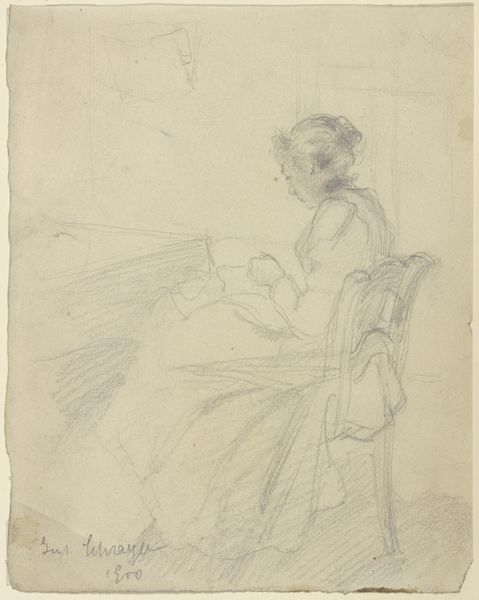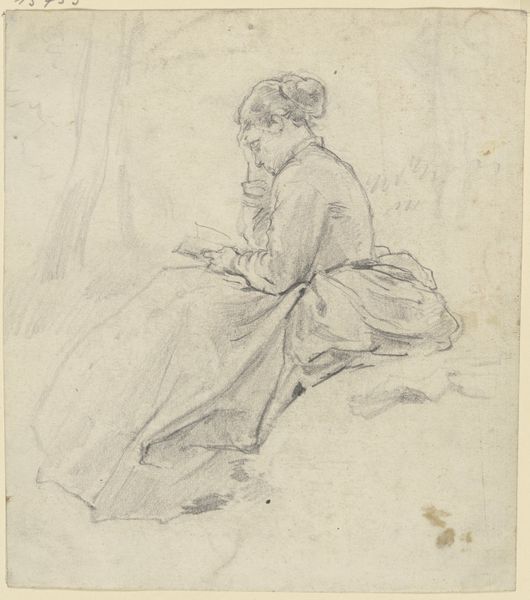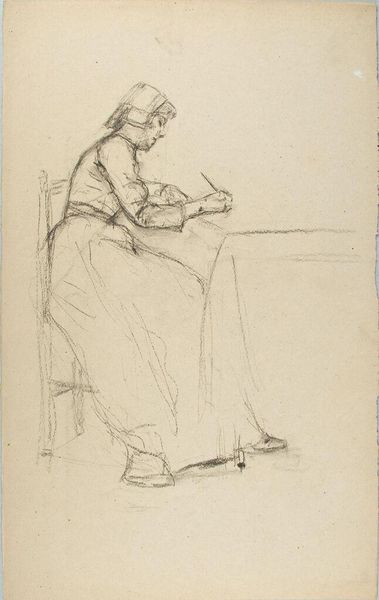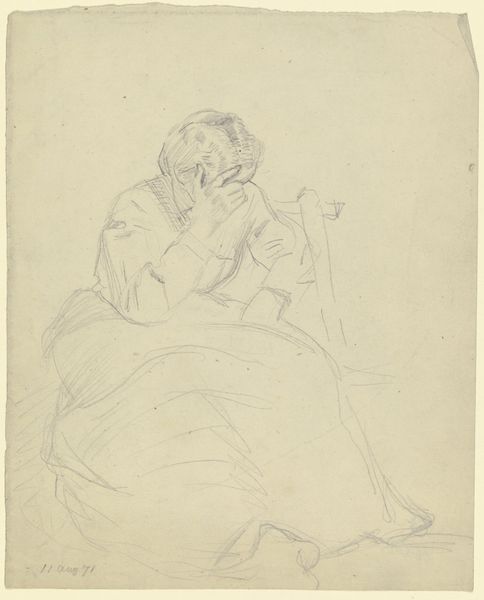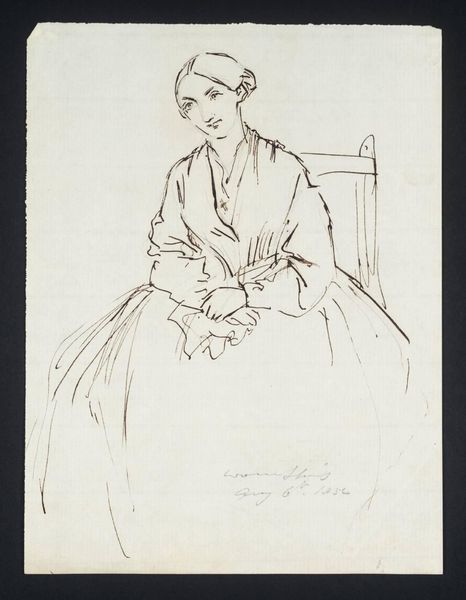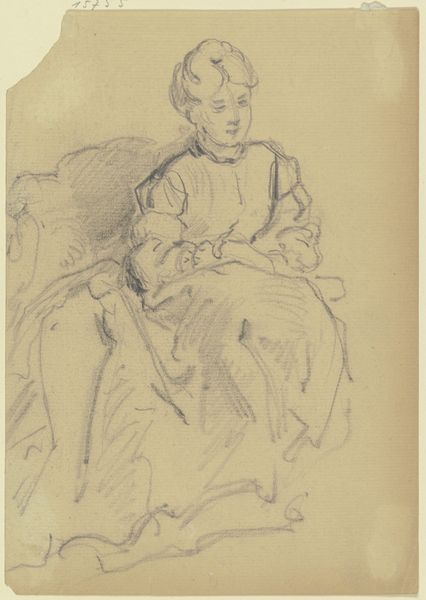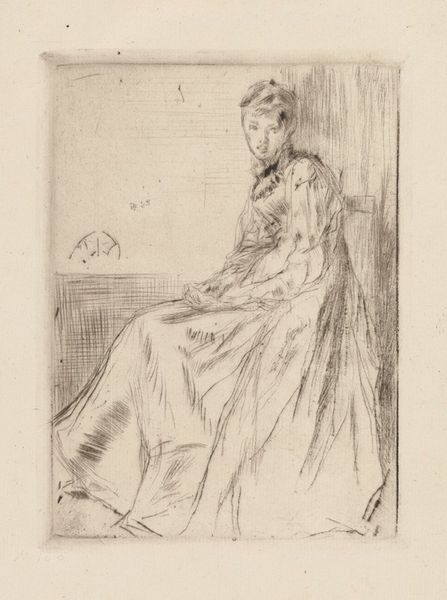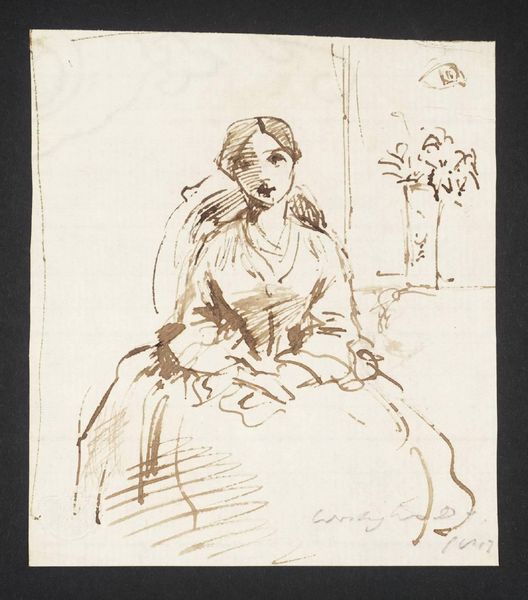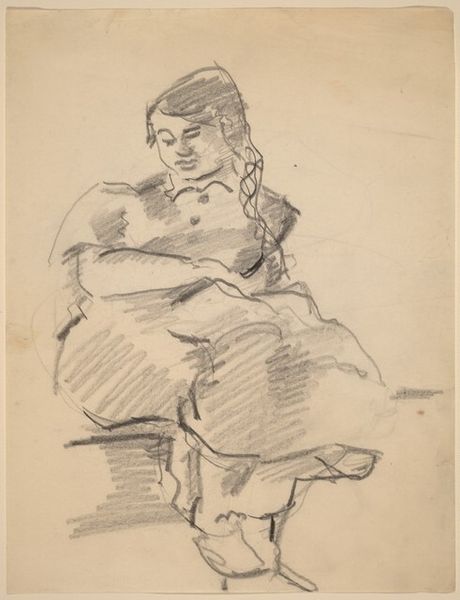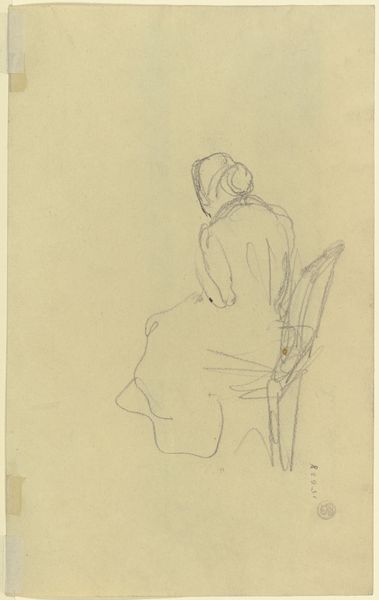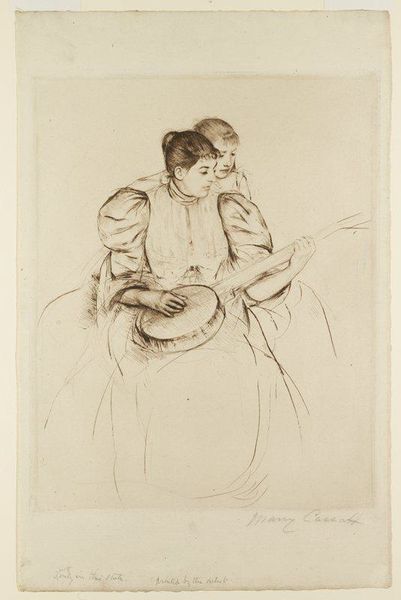
drawing, paper, ink
#
portrait
#
drawing
#
amateur sketch
#
toned paper
#
light pencil work
#
pen sketch
#
pencil sketch
#
paper
#
personal sketchbook
#
ink
#
ink drawing experimentation
#
romanticism
#
pen-ink sketch
#
sketchbook drawing
#
pencil work
#
genre-painting
Copyright: Rijks Museum: Open Domain
Johannes Tavenraat sketched this seated peasant woman with pen and ink. Her head covering speaks volumes. The ‘kap’ was not merely a piece of cloth; it was a cultural inscription defining her role and place. Head coverings have crossed epochs and geographies as symbols of piety, protection, and social status. Consider the veils of antiquity, the nun's habit, or even contemporary headscarves. Each tells a story of cultural identity, faith, and sometimes, subjugation. The woman’s posture, head bowed and hands clasped, evoke a sense of humility, introspection, and perhaps the weight of daily toil. We see variations of this pose in countless depictions of Madonnas, saints, and mourning figures throughout art history. The bent head, the clasped hands. These gestures transcend mere representation; they are vessels of collective memory, carrying the emotional echoes of generations. This image is a powerful condensation of cultural memory. In its simplicity, Tavenraat’s sketch opens a doorway to understanding how symbols persist, evolve, and engage with our subconscious, bridging the past and present in an unending cycle of meaning.
Comments
No comments
Be the first to comment and join the conversation on the ultimate creative platform.
